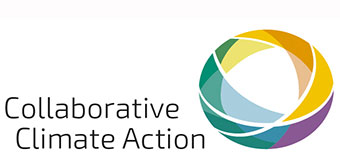Global Recovery: An Imperative for Multi-Level Governance
Event Summary Daring Cities 2020
Joining the strong calls for a global green recovery, local and national decision-makers from Kenya and the Philippines presented best practices of collaboration across governance levels. In addition, a member of FELICITY (Financing Energy for Low-carbon Investment – Cities Advisory Facility), which is a a joint project of GIZ and the European Investment Bank, shared insights on how to address the gap between the needs for urban infrastructure development as well as multi-level governance and the availability of climate finance.
The 90-minute workshop as part of the three-weeks Daring Cities Conference was jointly organized by adelphi‘s “Vertical integration and learning for low-emission development” (V–LED) project and by the GIZ project “Climate Policy Meets Urban Development” (CPMUD).
Setting the frame for the conversation, Constanze Boening, Project Director of CPMUD at GIZ, said that there was no doubt over the key role local actors play in driving a global, green recovery. “However, we also know that cities cannot turn the tide alone. Building back better requires national governments and subnational levels to work closely together,” she highlighted.
Raoul Cam, Planning and Development Coordinator of Ormoc City in the Philippines, spoke about Ormoc’s experience in attaining national funding for their local climate action plan. This funding has enabled the city, despite limited own resources, to redesign a public plaza as well as to rehabilitate mangrove forests. City officials also made use of capacity trainings provided by the Climate Change Commission and participated in national conferences.
In preparing Ormoc’s climate change adaptation plan, the city launched a big participatory process including the local community as well as the private sector from the very beginning and making them part of the project identification and prioritization phase. The highly transparent and inclusive approach has proven to be one of the key success factors for implementing the city’s plan. Getting many stakeholders as well as the public on board was also aided by the general awareness in the Philippines “that we are vulnerable to climate change, that our ecosystems are vulnerable to climate change,” as Raoul reported.
Peter Odhengo, who is heading the Climate Finance Unit at the Kenyan National Treasury, spoke about the many challenges for climate action at the local level in Kenya. For instance, while several levels of governance are involved, there is often a lack of clear responsibilities as well as of skills and resources at the local level, a lack of climate data and funding instruments that are not aligned with local priorities.
The Kenyan government has, therefore, advanced a groundbreaking climate change regulatory framework, called the “County Climate Change Fund” (CCCF). Besides the establishment of a climate legislation at county level, a country-controlled fund finances climate projects that are identified and prioritized by local communities. It is designed to accelerate the green economy, while assigning wide responsibility and financial benefit sharing to its 47 counties.
Marco Schiewe, Project Manager at FELICITY spoke about what cities can do to access finance and how multi-level governance can be a “powerful tool to build bridges and to make local climate action happen.” Cities should build their climate investment projects on the basis of long-term participatory and integrated urban planning and seek guidance from federal states as well as from international institutions.
Taken together, the speakers have shown how local solutions can tackle both crises at the same time. They made clear that, at the local level, climate action planning is not the responsibility of one person, but of a vast array of stakeholders and that improving access to finance, engaging the private sector early on and aligning investor interests with climate targets are key.
For further information see V-LED’s case studies on the County Climate Change Funds in Kenya and on Local Climate Action Planning in Ormoc City.
Highlights from today’s @VLEDproject & @giz_gmbh ‘s #DaringCities discussion on how collaborative climate action can help tackle the #ClimateCrisis and #COVID19 crisis. Find more insights on collaborative climate action here: https://t.co/bl0UQgtA9H pic.twitter.com/bdP0DcyWPv
— Local climate action (@VLEDproject) October 19, 2020


